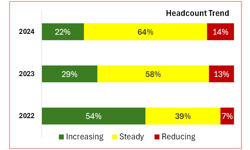According to publishers, Future: Thriving even as younger, brasher music magazines suffer painful circulation declines, the print and digital publication, previously known as Classic Rock Presents… Prog, will scale up from nine to ten issues this year.
The move comes as the title relaunches with a host of fresh features and a lavishly-designed new look that will cement its status as a rare success story in a music press that generally appears resigned to shedding readers.
Even at its premium £7.99 cover price, Prog has typically sold on average 20,000 copies an issue, and its new incarnation is set to boost those numbers. Having been embraced by prog’s affluent and notably dedicated cult following, the magazine has established itself at the heart of this most unique and underground of rock scenes.
The revamped Prog, featuring cover stars Jethro Tull, includes regular columns from snooker legend and prog fan Steve Davis and keyboard wizard and Grumpy Old Man Rick Wakeman, as well as bountiful coverage of prog’s past and its vibrant present.
Among other new features are The Albums That Built Prog, beginning with The Moody Blues’ Days Of Future Passed; Time In A Word, which explores a major moment in prog, starting with Phil Collins’s first show as the frontman of Genesis in 1976; and Outer Limits, which examines the prog credentials of scene outsiders, Queen first among them.
Jerry Ewing, Prog editor, says: “What we wanted to do was try to push things forward, making the magazine look modern while also making it clear that we weren’t turning our backs on what has gone before. When we launched, everyone assumed we would write about nothing but reissues. In fact, our new album reviews section is three times the size of the reissues section, and we still struggle to get all the brilliant new music in.”
Chris Ingham, Future Publishing Music Group Publisher, says: “Prog rock is going through its most buoyant period since the mid-1970s. Classic Rock Presents… Prog has fed that market and been rewarded with great devotion from its readers, and Prog is going to take that forward.”
Prog’s rude health echoes that of the music it covers, which has likewise bucked music industry downward trends by maintaining a devoted, ‘underground’ audience served by independent labels and self-financing bands.
Unfashionable in mainstream circles since its heyday in the 1970s, when it was characterised as bloated, excessive and rooted in fantasy and pretentious concepts, progressive rock now covers a huge and diverse group of musically ambitious artists, from Pink Floyd and Yes to modern stars such as Radiohead and Muse.










